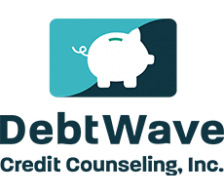Consumers are overly dependent on credit cards, with many consumers relying on credit cards to make ends meet, according to a new report from PYMNTS.com.
The report found that before the Holiday Season began, consumers were using credit cards to fund many purchases without a real plan to pay off that debt. A concern now is that many consumers will soon find they have overextended themselves financially and don’t have the ability to pay off high-interest credit card debt, the report said.
The concern around consumers’ financial health is growing now that the average outstanding credit card balance is more than $9,000, up from around $6,800 balances two years ago.
Data released from the Federal Reserve on Jan. 8, 2023, showed that overall credit usage was up 5.7 percent annualized.
Revolving credit, which includes credit card debt, increased in November at an annualized pace of 17.7 percent. That’s the fastest pace seen, annualized, through the past several months. Overall revolving debt now is just under $1.3 trillion, up from the roughly $1.2 trillion at the end of 2022.
Given that this trend of using credit cards to fund purchases continued throughout Black Friday and the winter holiday shopping season, total outstanding credit card debt is likely higher than the Fed recently reported.
Early estimates show credit card balances rose 9 percent compared to a year ago due to holiday spending, higher interest rates, and inflation, according to a report from VantageScore. The report found total average credit card debt balances increased by $2,032 in November 2023 alone.
Because more than 60 percent of Americans are living paycheck to paycheck as of November 2023, there is growing concern that the wiggle room to manage credit adroitly is becoming a bit more constrained for many consumers. Delinquency rates inched higher across most products making a holiday spending “Credit Hangover” increasingly likely, VantageScore reported.
Report: Consumers Over-Relying on Credit Cards to Make Ends Meet
What makes high amounts of credit card debt concerning is how difficult credit card debt can be to pay off. Credit card debt, of course, tends to have significantly higher interest rates than other debt. The Fed’s reported interest rates on cards stood at more than 21 percent, up from 15 percent just before the pandemic.
One option for consumers who find their credit card debt is starting to spiral out of control is to work with a nonprofit consumer credit counseling service like DebtWave Credit Counseling, Inc.
Credit counseling is designed to help consumers of all financial backgrounds, avoid bankruptcy and stop living paycheck-to-paycheck.
Since 2001, DebtWave Credit Counseling has worked closely with thousands of Americans to help them pay off credit card debt, create a savings strategy, and learn to implement healthy personal finance habits into their daily lives.
As a 501(c)3 nonprofit organization, DebtWave offers a free confidential budget analysis with a certified credit counselor to help consumers develop a workable budget for your financial situation, as well as share advice on how to better manage your finances and reduce debt over time.
DebtWave also offers financial education programs and a Debt Management Program to help you pay off your credit card debt in three-to-five years by working with your creditors directly to reduce your interest rates. In some cases, plans may extend beyond five years.
While it’s true that approximately 39 percent of Americans have credit card debt, that’s no reason to not pay off your debts. Avoiding credit card debt is especially damaging because interest charges and late fees pile up quickly, making it even more difficult and costly to become debt-free.
Nonprofit consumer credit counseling is a great way to begin your journey toward financial independence. Whether you’re looking for assistance paying off debt, looking to repair your credit, or learning how to create and utilize a budget to your financial advantage, DebtWave Credit Counseling is here to help.
When you call DebtWave Credit Counseling, Inc. for a free credit counseling session, you’ll speak one-on-one with a certified credit counselor about your finances for about 60 minutes.
During the call, a financial counselor will pull a soft inquiry on your credit, meaning it won’t have a negative impact on your credit score, but will allow your credit counselor to view your liabilities, account statuses, and credit score. Your financial counselor will also inquire about your financial goals, income, expenses, and debts, in order to provide general personal finance advice including advice on budgeting and managing money.
Monthly expenses your financial counselor may inquire about include:
- Net Income
- Mortgage/Rent
- Auto Loans
- Student Loans
- Credit Cards (balances, interest rates)
- Groceries
- Gas
- Internet
- Cell Phone
- Insurance
- Subscription Services (Netflix, Amazon, Hulu, Disney+)
In instances in which a consumer has medical debt, student loans, and/or credit card debt, a financial counselor will share all possible options for paying off that debt.
Options financial counselors will discuss for paying off debt include:
- Handling the debt on your own
- Declaring bankruptcy
- Enrolling into a Debt Settlement Program
- Liquidating your assets
- Enrolling into a Debt Management Program
As part of sharing your options for paying off debt, your financial counselor will share an estimated payoff date, as well as estimates for the total money paid, including interest, in order to pay off that debt.
Solutions vary because each consumer will have varying levels of debt, expenses, and financial goals.
While consumers without debt are encouraged to be proactive about their financial situation by reviewing their budget and financial goals with a certified credit counselor, the bulk of consumers who take advantage of credit counseling services do have credit card debt.
Even if your credit card debt seems manageable, asking a financial counselor to explain credit card terms or assist you in making a budget to avoid financial disaster in the future is highly encouraged.
To schedule a complimentary budget analysis with one of DebtWave’s nonprofit certified credit counselors, get started online or call 888-686-4040 to begin your journey toward financial freedom.


